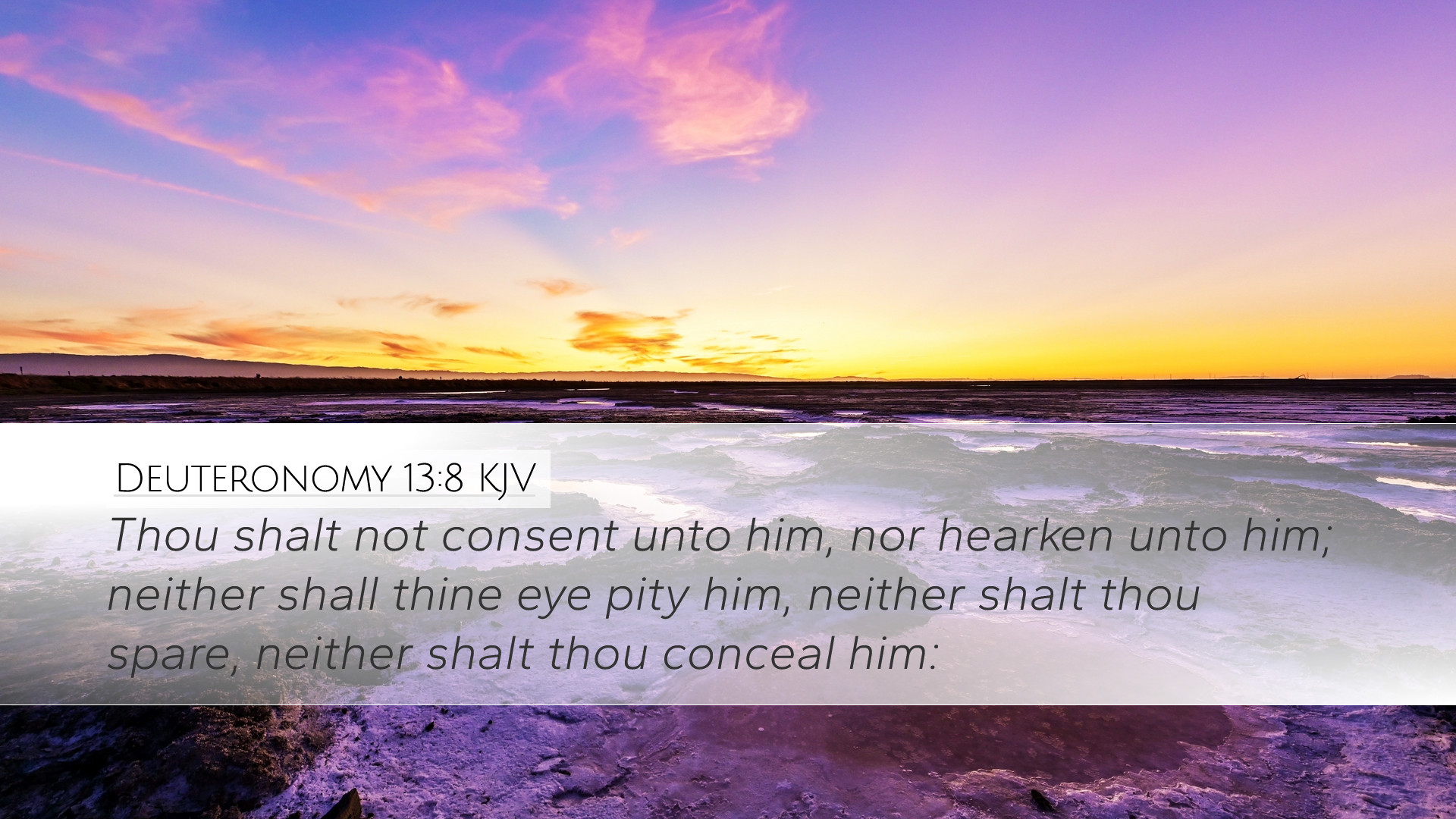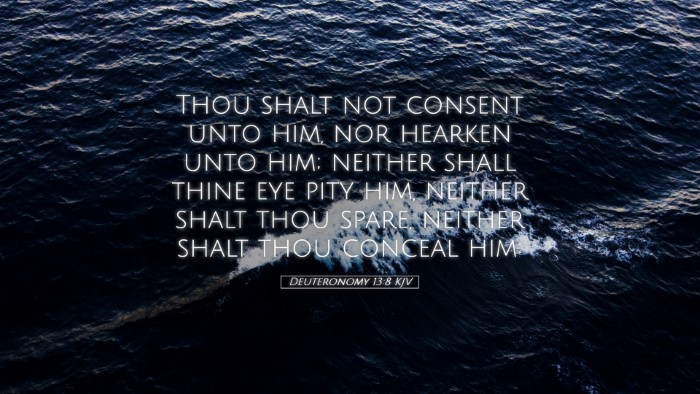Commentary on Deuteronomy 13:8
Verse: “Thou shalt not obey him, nor hearken unto him; neither shall thine eye pity him, neither shalt thou spare, neither shalt thou conceal him.”
Introduction
In Deuteronomy 13:8, we encounter a profound directive from God concerning the fate of false prophets and the necessity for discernment among His people. This verse serves as a critical component of the larger discourse on idolatry, faithfulness, and the community’s response to internal threats that challenge their covenantal relationship with God.
The Context of Deuteronomy 13
Setting: This chapter is set within Moses' farewell address as he prepares the Israelites to enter the Promised Land. It emphasizes the call to loyalty to God and denounces any form of idolatry or leading astray by false teachers.
Theme: The overarching theme is the need for vigilance against influences that can divert God's people from their covenantal obligations.
Insights from Public Domain Commentaries
Matthew Henry’s Commentary
Henry emphasizes the gravity of the sin of leading others astray from worshipping the true God. He draws attention to how seriously God considers a person's commitment to Him; thus, any traitor against that trust must not only be disregarded but actively opposed. He argues that allowing false prophets to thrive is tantamount to a national compromise, risking the community's relationship with God.
Albert Barnes’ Notes on the Bible
Barnes highlights the imperative of rejecting any call that contradicts the teachings of God. He notes the term “thou shalt not obey him” specifies the active resistance required by the faithful, illustrating that to listen or to accept false teachings is a profound wrong. Moreover, his commentary reflects on the importance of community vigilance; the phrase “neither shall thine eye pity him” indicates a call for discernment devoid of emotional bias, showcasing the need for steadfast adherence to God’s truth, irrespective of personal relationships.
Adam Clarke’s Commentary
Clarke adds depth by discussing the consequences of failing to heed this directive. He warns against the allure of personal connections blinding one’s duty to God. The absence of pity and concealment of sin is not merely a societal safeguard but a divine mandate to maintain holiness in the community. Clarke raises ethical considerations, urging leaders and the faithful to prioritize devotion to God over human affection when fidelity is at stake.
Theological Implications
The verse functions on multiple theological levels. It speaks to the necessity of purity in worship and maintaining the integrity of covenant relationships with God. This verse also suggests a broader principle of accountability within the community of faith. The refusal to spare the false prophet is seen not only as a punitive measure but as a protective one, ensuring the community remains shielded from the spiritual dangers posed by deviating teachings.
Application for Modern Believers
For contemporary pastors, students, theologians, and scholars, Deuteronomy 13:8 prompts engaging with the challenges of discernment in a pluralistic society. The exhortation not to listen or show pity can translate into assessing teachings and doctrines critically before integrating them into personal faith or church practice. It encourages a robust engagement with Scripture as a means of detecting falsehood and empowers believers to stand firm in their convictions.
- Encouragement for Community Vigilance: Engaging congregations in discussions around what constitutes a positive spiritual influence versus a detrimental one.
- The Importance of Sound Doctrine: It calls for rigorous theological education to equip believers to discern truth from error.
- Fostering Courageous Faith: Encouraging a stance that reflects the weight of God’s instructions in the face of cultural pressures.
Conclusion
Deuteronomy 13:8 is a reminder of the call to fidelity amidst challenges and the vigilance that characterizes a life devoted to God. The insights drawn from public domain commentaries highlight the depth of this directive, urging believers today to prioritize their spiritual integrity by diligently adhering to the truth and rejecting any forces that seek to undermine their faith.


